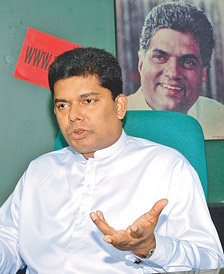Developing Sri Lankan Media; The State’s Obligations

The State’s obligations in the development of free, pluralistic and independent media
The obligation of the State is to provide an enabling environment for its people to enjoy their fundamental right to receive and impart information without any obstacle to their freedom of expression. Therefore, State’s interventions in Media development should be done only with a view to enhance the freedom of the press and to ensure people’s right to receive quality information from media.
To begin with, ideally the government should organise a comprehensive multi-stake holder assessment to identify media development needs utilising the widely accepted UNESCO’s Media Development Indicators in which media development issues are categorised into the following five different and interlocking areas.
- a system of regulation conducive to freedom of expression, pluralism and diversity of the media.
- plurality and diversity of media, a level economic playing field and transparency of ownership:
- media as a platform for democratic discourse
- professional capacity building and supporting institutions that underpins freedom of expression, pluralism and diversity
- infrastructural capacity to support independent and pluralistic media:
Nonetheless, some important media development tasks can be based on the recommendations made by R.K.W. GoonesekereCommittee established in 1996 to advise on the reforms of laws affecting media freedom. But it is less likely that they can be implemented fully in this interim period. However belated is to act on those recommendations, it would be important to pronounce media development initiatives following from them, so all stakeholders, including the political parties contesting the next election can take a stand on the policy issues pertaining to media development. In the meantime the government should start a consultative process to build consensus around the following vital reforms recommended by the R.K.W. Goonesekere Committee.
1. Establishment of an Independent Media Council
Replacement of the existing Press Council law with an Independent Media Council Act (This act can be based on the legislation enacted to establish the Independent Press Council of Indonesia, with the expert advise provided by UNESCO). The independent media council should co-regulate all established news media which are originated in the country and distributed through print, electronic and online platforms with the following intentions.Read More


